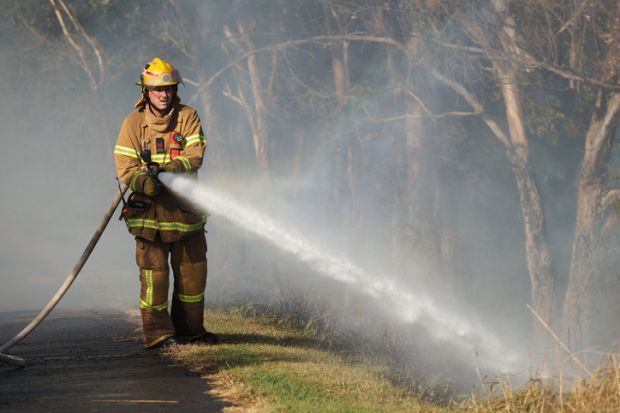When I became vice-chancellor of the University of Western Australia, I was acutely aware of the enduring importance and power of the words of its founding act of 1911.
The gentlemen of 1911 believed that it was “desirable that provision should be made for further instruction in those practical arts and liberal studies which are needed to advance the prosperity and welfare of the people”.
There it was, more than a century ago: the insistence that a university had a social function, that it existed to serve the community.
Whether or not universities have such a mission enshrined in their founding documents, they fill that role every day: carrying out the research that solves all manner of problems and points the way forward, and training the people without whom modern societies could not function.
What is our role when a community is in crisis? Do we assume that we are wiser than others; that we should act as philosopher kings?
It could be argued that one of our most important roles is that of helping communities avoid crises. We teach that circumstances are subject to constant change; we try to make reasonable assumptions about the longer term unfolding before us.
The scientists produced by universities have long warned that the global climate is changing in ways that might be, indeed will be, problematical. They have also insisted that we have the knowledge and power to do something about it.
This summer, Australia burned as a horrified world watched. There was distress and outrage as smoke filled the air; firefighters died in hopeless struggles against fires that could not be contained; and as many as a billion animals lost their lives.
What were the nation’s universities to do? At a human level, we helped as best we could. There was no thought of standing off to the side with our arms folded, pointing out that our experts had warned there was trouble ahead.
Duncan Maskell, vice-chancellor of the University of Melbourne, has spoken of a general climate of declining respect for academic expertise, and expressed a concern that academics are deterred from speaking up because of the mass of ill-informed opinion that inevitably follows.
We must not be deterred. We must speak more and more often.
Shouting does not work; the inexpert can shout louder. Reasoned analysis and presentation of evidence-based knowledge is never more important than in an echo chamber filled with those who are screaming at each other.
We have an obligation to speak up and to speak clearly. People and nations are not served by our silence or circumlocution, although individual leaders might well be.
Ant Bagshaw, a higher education consultant and co-author of Influencing Higher Education Policy: A Professional Guide to Making an Impact, has suggested that universities have to build “authenticity” into relations with major political players. He was speaking of the sphere of higher education policy, but the point applies across all policy areas.
Those who have knowledge have a duty to share it. Those trained to reason calmly and speak rationally have a duty to model it.
Bagshaw has also reminded us that universities are “designed to live into perpetuity”. We must not throw away our greatest advantage, that of supplying trustworthy information, in an effort to seek an easing of short-term conditions.
Would some politicians, industrialists and media outlets prefer that universities cease producing and harbouring scientists who speak out on climate change? Of course they would.
Others would like us to speak even more dramatically, to campaign as institutions for whatever is designated a good cause. I would argue that it is unwise to do so – although we can and should model what we believe is “best-practice” good behaviour.
Our good, eternal cause is truth-telling and the freedom to do so without fear or favour. That is a cause worth fighting for.
It isn’t easy. We wrestle every day with finding truth and re-examining it. We annoy those who do not see why we have changed our minds; we anger and distress those whose support we need and want; we disappoint those who want vexatious voices silenced and cannot understand why we tolerate them.
When we speak calmly, clearly and honestly on issues relating to relations with other nations, including that of the coronavirus and foreign influence, we might well be accused of naivety.
If those accusations prove correct, we shall have to say – as we have said before – that we were wrong. But only if they prove correct.
In any crisis, real or imagined, we have a civic duty to be of immediate practical assistance to the greatest possible extent. We obey laws and heed advice.
And we perform our special duty as universities: we shield and protect those who think; we argue for their rights to express their thoughts, and we help them to do so.
Dawn Freshwater is vice-chancellor at the University of Western Australia.
Register to continue
Why register?
- Registration is free and only takes a moment
- Once registered, you can read 3 articles a month
- Sign up for our newsletter
Subscribe
Or subscribe for unlimited access to:
- Unlimited access to news, views, insights & reviews
- Digital editions
- Digital access to THE’s university and college rankings analysis
Already registered or a current subscriber? Login



